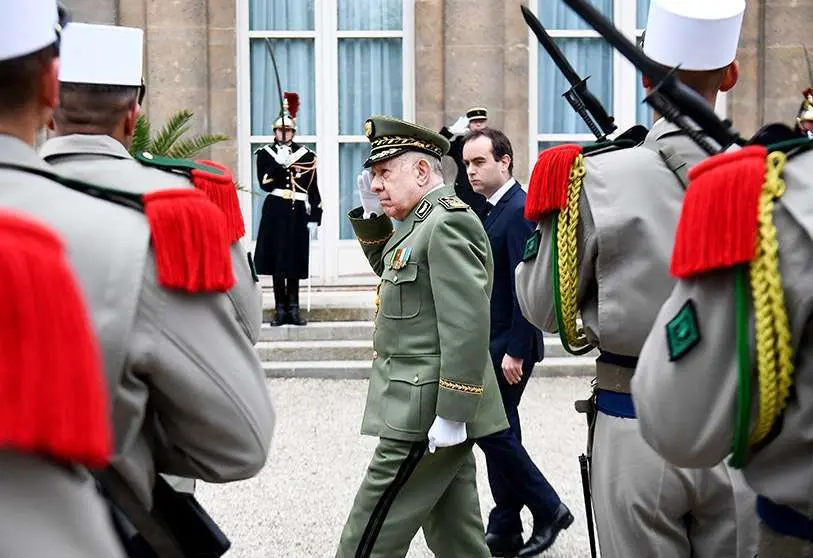Las incógnitas sobre los verdaderos intereses de Francia en el Magreb

Algeria's latest political and military moves include France in what is seen as a series of strategic positions of the two countries. Beyond the interpretations of every move in Algiers to disqualify its neighbour Morocco on the European and international stage, just at the moment of a great increase in Morocco's prestige and image thanks to its Atlas Lions at the World Cup in Qatar, it has now been conditioned by an alleged Qatari bribery scandal in the European Parliament that some are taking advantage of to involve Moroccan lobbying.
It is somewhat surprising that left-wing, far-left and radical parties in the European Parliament managed with some ease and speed to get a critical resolution on human rights and press freedom in Morocco debated and voted through. Other influential and decisive groups in other occasions managed by the governments of large European countries, such as France or Germany, absented themselves from the debate and facilitated the approval of a resolution that was intended to give great advantage to Algeria's military-political government over Morocco. Moreover, just a couple of weeks before an important High-Level Meeting between Spain and Morocco that will significantly boost relations between the two neighbours.
At this time, some key aspects of the recovery of relations between France and Algeria, after profound differences, need to be analysed.
For many observers, France is counting, among other things, on the recent $18 billion increase in Algeria's defence budget to establish arms contracts with the Algerian army.
The sale of arms to Algeria is proving to be a high-risk act, due to doubts over the final destination of these weapons, which will undoubtedly benefit armed groups in the region, such as the separatist militias of the Polisario Front. This conceivable scenario will have the effect of contributing to increased regional instability and undermining the integrity of Moroccan territory.
The question of Algeria's deployment in the Sahel would be among the issues to be addressed by the two parties, particularly in this situation that is provoking anti-French sentiment in Africa.
Algeria should play the role of France's emissary in the Sahel to try to curb the growing anti-French sentiment in the Sahel-Saharan region. This raises a number of questions about Paris' contradictions as a victim of Russia's advance in Africa, while at the same time supporting one of Moscow's main supporters in Africa, Algeria.
This visit perfectly demonstrates the duplicity of Algiers, which despite signs of rapprochement with the West (Paris and Washington), remains Russia's unfailing ally. The alliance with Moscow is even a constant of influential wings within the Algerian establishment. This gives Chengriha's move to France the lure of Algerian deception towards the West.
This deception should also be seen in the wake of the Algerian establishment's growing sensitivity to relations with the United States, and illustrates the gradual abandonment by the tenants of El Mouradia of their policy of mistrust in the face of pressure from Washington, which has now targeted Russia's allies and no longer hesitates to brandish the spectre of economic sanctions against them (CAATSA law).
In order not to further arouse the ire of the West, the PNA and its leaders are less and less reluctant to diversify their arms suppliers, especially given that the Russian ally is currently struggling to meet its needs and allow the West to benefit from an arms contract with the Algerian army. A change in trend that could be attributed to developments on the international scene and Western pressures, which are increasingly binding on Algiers.
France, fully aware of Algeria's potentially damaging role in northern Mali and neighbouring countries through its acquiescence to Russia's establishment in the region, its allegedly dubious relations with the coup regimes in Mali and Burkina Faso, as well as its suspicious relations with armed groups in the region, would even be tempted to bring Algeria back to its side in lieu of an opposition of interests between the two sides in the Sahel-Saharan region.
However, this visit is perceived as a service rendered by France to the person of General Chengriha, denounced and accused by the Algerian opposition abroad of having committed crimes and human rights abuses. Man and the trafficking of drugs and weapons. (Guermit BOUNOUIRA's revelations, which have turned the net upside down and revived truths about the dark side of CHENGRIHA, already mentioned in the book published by the former AN officer Habib SOUAIDIA, in 2001, "the dirty war").
His trip to Paris is a kind of discredit to the accusations of the Algerian regime's detractors.








